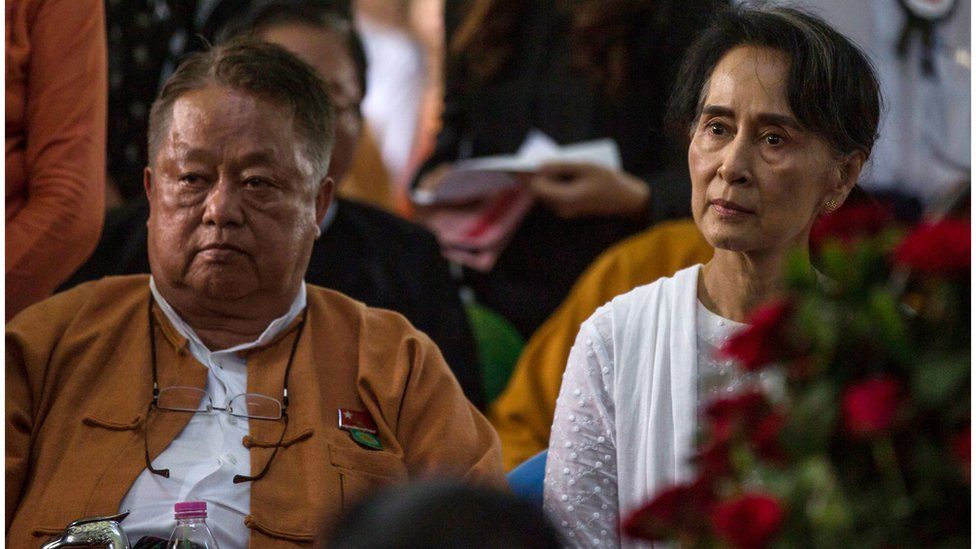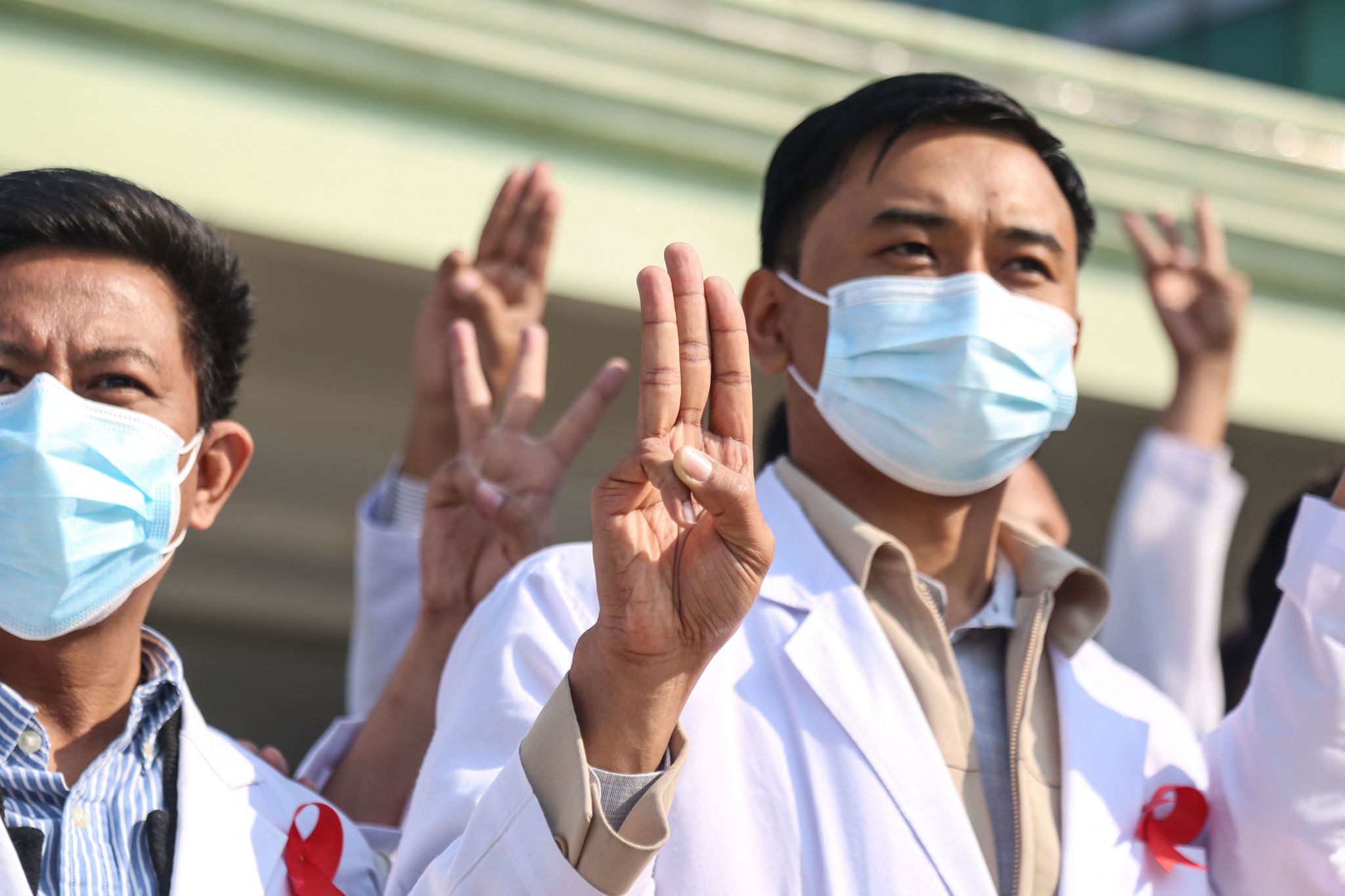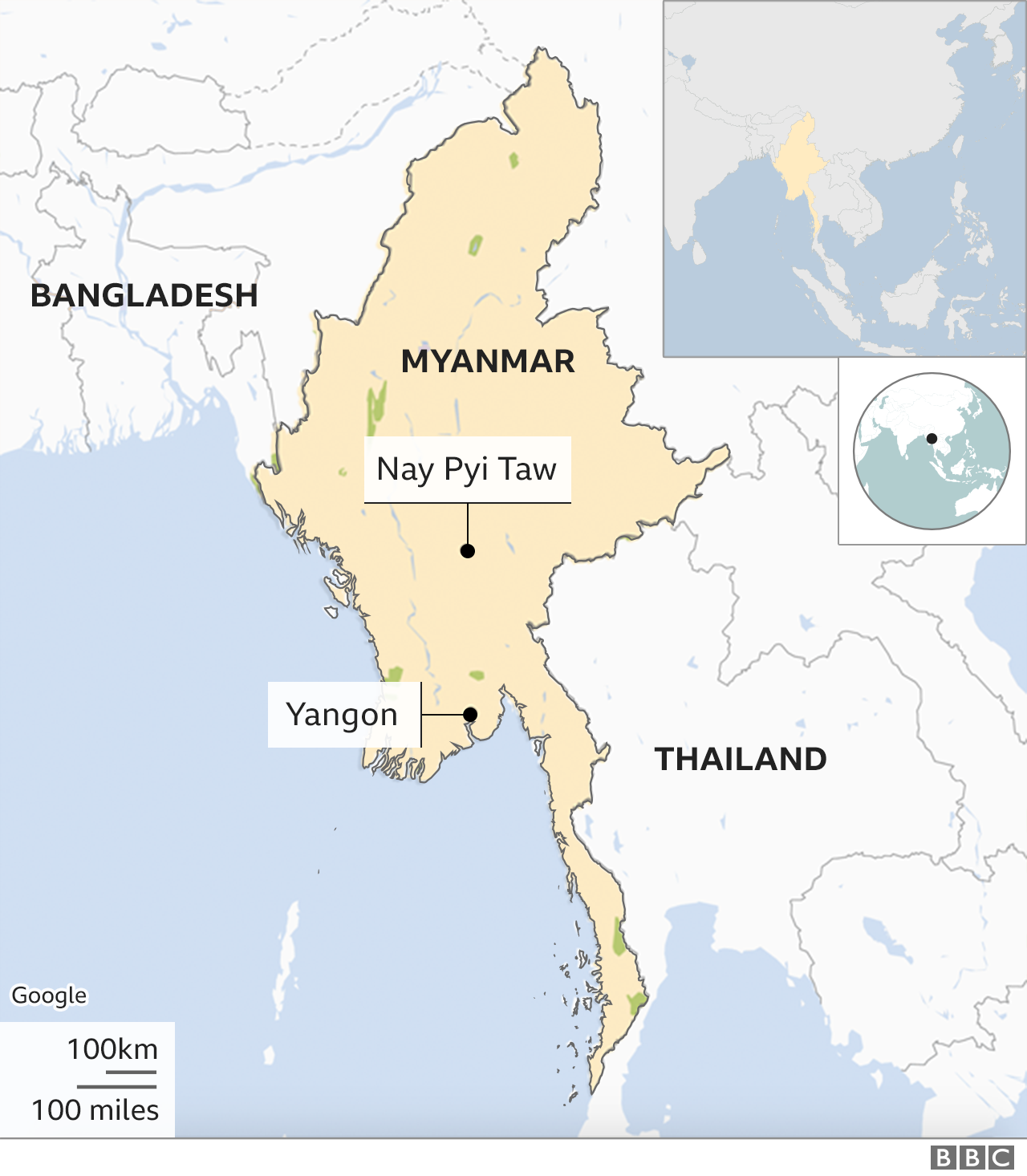Myanmar coup: Crackdown tightened with Win Htein arrest
 image copyrightAFP
image copyrightAFPMyanmar's military is tightening its crackdown on the former civilian government, with the arrest of a senior leader from Aung San Suu Kyi's National League for Democracy (NLD) party.
Win Htein was taken from his Yangon home early on Friday. He told the BBC he was arrested under sedition laws.
Ms Suu Kyi and other leaders have been detained since the military launched its coup on Monday, plunging the South East Asian country into uncertainty.
Their whereabouts remain unknown.
The military overthrew Ms Suu Kyi's government after it claimed a November election won by the NLD was fraudulent, though the country's election commission said there was no evidence to back up these allegations.
The move has been met with global outrage.
In his latest statement, US President Joe Biden on Thursday called on the military to"relinquish power" and release detained officials and activists.
The US had already threatened severe sanctions on Myanmar, which is also known as Burma.
In a pre-dawn phone call with BBC Burmese, Win Htein said he was being taken to the capital of Nay Pyi Taw by members of the police and the military.
He said he was being detained under sedition laws - which carry a maximum punishment of life imprisonment - although he was not told the exact charge.
"They don't like what I've been talking about. They are afraid of what I'm saying," he said.
The 79-year-old patron of the NLD and strong supporter of Ms Suu Kyi has given several interviews since the coup criticising the military and its leader Min Aung Hlaing.
Earlier this week he told local news magazine Frontier that the Tatmadaw, or Myanmar's armed forces, would "go into disrepute because of the coup".
"Staging a coup at the moment shows they are not wise and narrow minded," he said. "I experienced the coup of General Ne Win in 1962... Myanmar's economy suffered for 26 years after his coup."
Myanmar has remained mostly calm in the aftermath of the coup.
But residents in the main city of Yangon have conducted nightly protests from their homes, where they have been banging pots and pans and singing revolutionary songs.
Some healthcare workers have also gone on strike, while others have continued work wearing symbols of defiance such as a red ribbon.
 image copyrightMPA
image copyrightMPAA small street protest took place in front of a university in Myanmar's second city, Mandalay on Thursday, with reports of four arrests.
Many have also turned online to protest the coup. The military has since temporarily banned Facebook, which is widely used across the country.
Since the ban began on Thursday, many Burmese citizens have appeared to have flocked to other social media platforms like Twitter and Instagram.
Twitter declined comment when asked by the BBC if it had seen a spike in new users or tweets from Myanmar.
On Thursday US President Joe Biden said they would work with partners to "support restoration of democracy and the rule of law, and impose consequences on those responsible".
"The Burmese military should relinquish power they have seized, release the advocates and activists and officials they have detained, lift the restrictions on telecommunications, and refrain from violence," he said.
Mr Biden had earlier warned that the US was considering re-imposing sanctions.
The United Nations Security Council also said on Thursday that it "stressed the need to uphold democratic institutions and processes, refrain from violence, and fully respect human rights, fundamental freedoms and the rule of law."

Myanmar at a glance
Myanmar is a country of 54 million people in South East Asia which shares borders with Bangladesh, India, China, Thailand and Laos.
It was ruled by an oppressive military government from 1962 to 2011, leading to international condemnation and sanctions.
Aung San Suu Kyi spent years campaigning for democratic reforms. A gradual liberalisation began in 2010, though the military still retained considerable influence.
A government led by Ms Suu Kyi came to power after free elections in 2015. But a deadly military crackdown two years later on Rohingya Muslims sent hundreds of thousands fleeing to Bangladesh and triggered a rift between Ms Suu Kyi and the international community.
She has remained popular at home and her party won again by a landslide in the November 2020 election. But the military have now stepped in to take control once more.



Have you been affected by recent events in Myanmar? You can share your experience by emailing haveyoursay@bbc.co.uk.
Please include a contact number if you are willing to speak to a BBC journalist. You can also get in touch in the following ways:
- WhatsApp: +44 7756 165803
- Tweet: @BBC_HaveYourSay
- Please read our terms & conditions and privacy policy



No comments